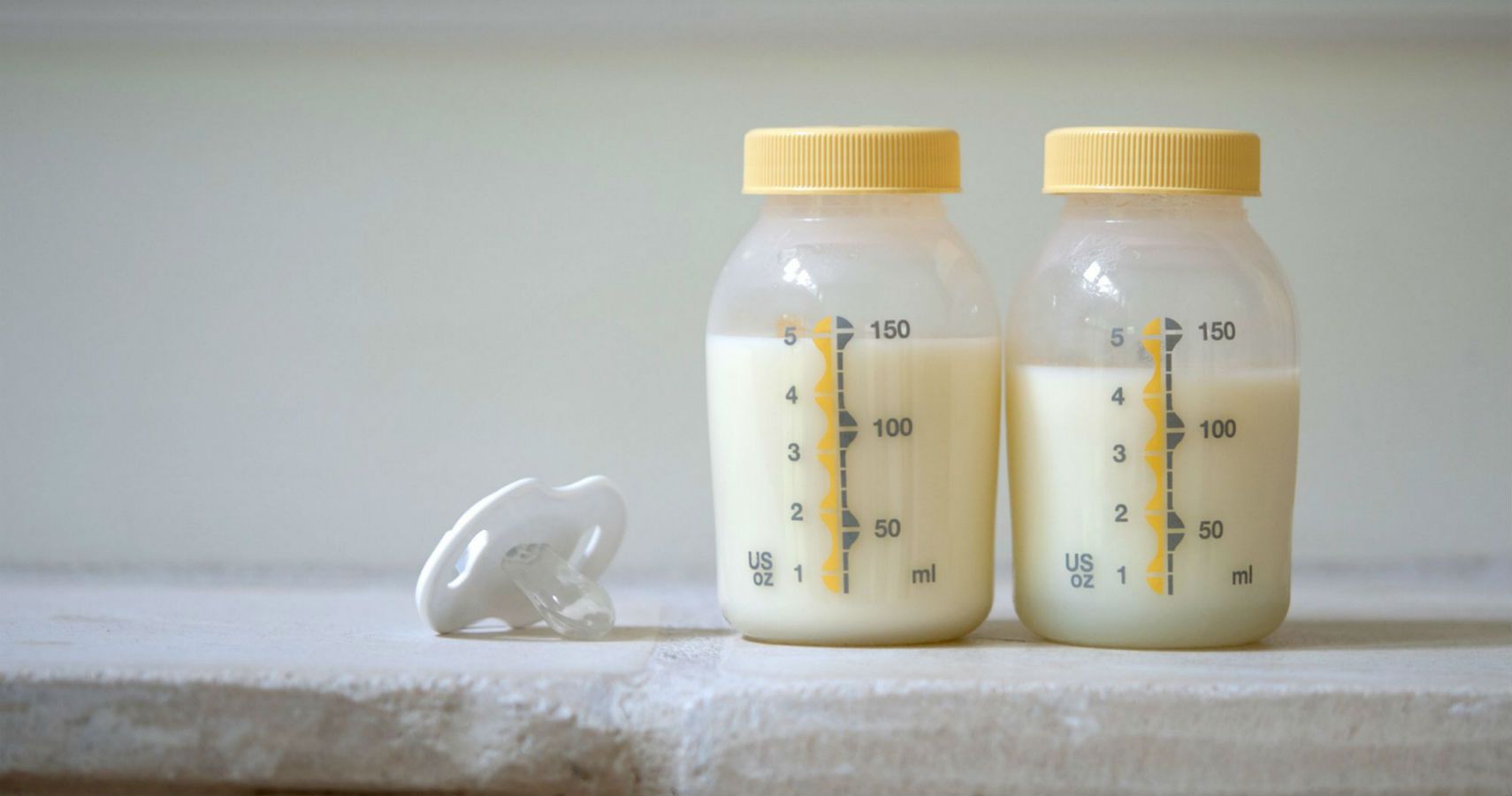Nursing moms often rely on pumping to help them get through the day. In some cases, the milk supply is simply so abundant that the excess needs to be released. In others, moms who have to work or spend some time away from their kids need to fill up some bottles. Whatever the reason, pumping is a pretty standard practice for breastfeeding moms. In fact, according to The Atlantic, 6% of mothers exclusively pump and bottle feed, for various reasons. A few decades ago, this was unheard of. However, pumping may have a detrimental effect on the quality of milk, experts say.
Most people may assume that mom's milk as is as good as it gets, regardless of if its taken directly from the source or from the bottle. Researchers have found that this isn't the case. The microbiome of expressed milk is different, making "indirect breastfeeding" associated with a greater amount of pathogens. In turn, this could put babies at risk of respiratory infections and asthma. Pumping also allows the breast milk to cool, which degrades the quality of the milk.
Furthermore, the mere act of pumping at all can pose its own risks. As with any equipment, pumps can be prone to harboring bacteria if they're not cleaned properly. This cross-contamination can be passed on to the milk, which a baby then consumes. While experts aren't saying moms should abandon pumps entirely, it's clear that pumping isn't as straightforward as most of us thought. There are many different factors that go into it.
Sadly, for moms that exclusively pump, there's not enough research out there, according to lactation guru Fiona Jardine. Amanda Glenn, another expert in the field, laments the lack of well-versed professionals in the area. According to Glenn, new moms struggle to get accurate information or advice on the subject as there simply isn't anyone to help them. Part of the problem involves the complexity of pumps themselves, which often require self-assembly and sterilization.
RELATED: Breastfeeding Mother Told Not To Feed Her Child At The Water Park
The overall stress from pumping, especially in public places, can also have an effect on the quantity of the milk produced.

